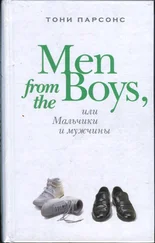The young widow from yesterday. The fiancée of one of the accident victims. She goes abroad on vacation. Walking alone down a street, she sees a familiar face. It can’t be. Her heart skips a beat. It can’t be. The face smiles at her. Her lover’s face on a stranger’s body. Surprised to see her looking at him like that, the boy comes over and speaks to her in English.
Who do the faces belong to? And the bodies? Whose are they?
The blond executive’s mug was the best one he had, but he changed it as easily as — depending on his mood — he changed the picture in his mind of the person whose fingers typed the words that appeared on his screen from some corner of cyberspace. Quick replies filled with good intentions and good vibes emerged on the luminous pond of the screen amid an exasperating chaos of multicolored ads and last-minute offers for porn sites and online sex shops, cyber casinos, airlines, shops that sold tires and spare truck parts, antivirus programs, video games. . In the midst of that mess of invasive little pop-up windows, there was an oasis of altruism and warmth, of serenity and trust, a tear in the fabric of selfish demands.
What’s wrong, Miqui?
You really think so?
Do you want me to explain what happened to me?
I understand, Miqui.
I’m so sorry, Miqui.
Life’s a bitch.
We all have our moments.
Tell me, Miqui, I want to know.
Words climbing out of the abyss, company. The screen flickered like a star at the heart of a dark room in an apartment on a carless street in Sils, a fading star, around which the room’s furnishings slowly revolved, the unmade bed whose skirt dragged on the ground, the chair with a mountain of clothes to iron and fold, sleeves and pant legs hanging between chair legs, the cardboard box with the empty cans from the beers he occasionally got up to get from the kitchen. . the cylindrical basket with the overflowing bag of dirty laundry. .
The small table was another orbiting planet, with the unplugged clock radio, green lamp with a burnt-out bulb, and little drawers that he never opened filled with coins, cards, pens, maps of cities he’d traveled to a thousand years ago, papers, photographs, and torn concert tickets. . There was a poster the mechanic had given him, pinned up right beside the window with its blinds drawn, a blown-up photo of the latest model of a Mercedes Atego, red like his, and with a crane and a cargo bed, but his was already twenty years old. The mechanic must have thought he could buy it, that he’d fall in love and do anything to have it; he must have taken him for a truck nut, crazy for engines. Miqui knew a few guys like that. The mechanic must have thought he’d ask for a loan — not that they’d give it to him — because his Atego was a wreck. He was always having to fix it, one patch over the next, and the mechanic had told him he could buy a new one with all he spent on repairs. Sure, he had thought. In my next life. The Atego’s nose stuck out from the middle of the stretch of wall, through a frame of white thumbtacks. . The poster was curling slowly, puffing out slightly like a shifting sail, a carefully maneuvering truck. .
The closet’s open door was like a dissected wing, lined with photographs of top models, the most attractive faces of ten years past, which had yellowed in the photographs; they’d dried out on paper just as they’d dried out in real life, expired models, past their sell-by date. . And on the top shelf of the closet there was a case with a shotgun inside, above the bar of empty hangers — he only had two shirts hung up, two ridiculous shirts he never wore — the case was half hidden amid a pile of notebooks and textbooks from high school, a dinged trophy he had won in a school literary contest, and a racket. .
When he was feeling good he would post the photo of a tennis player with curly hair, a guy younger than him, damp with sweat after winning a game, with two days of beard growth, clean, smiling, sporty. In his best moments, Miqui felt like that. It was like pulling back a curtain and discovering himself improved. He would confess after an endless chat session, once the chick convinced him to meet up to have a coffee or go to bed together. Then it was time to say, “I’m not the guy in the photo,” but the conversation had already gone too far for her to really mind, and she would convince herself that she didn’t really care; anyway, the photo she’d posted wasn’t her, either. Or it was her but twenty years ago, or looking taller and more attractive, or with longer hair. On the web, everyone was very generous.
It was hard to resist the temptation to get together with someone. He had to offset the gravity of the bodies behind these conversations. Bodies have gravity, without gravity people would float off the planet, only rooted plants would be left on Earth, the sea’s water would scatter throughout the universe, and the fish would float, dead, among the planets. He had printed out a red stop sign with the words MEETING up underneath, and taped it to his keyboard. The girls he chatted with were far away, in Barcelona at least, and he did short-haul transport, when he had work. But even if he did drive long distances, he wouldn’t have listened to the other truckers who suggested he get in touch with chicks in the places where he was headed; he didn’t want to pay for a hotel or sex. They insisted, but he wasn’t convinced. The real angels lived in Guatemala or Galicia. He ruled out chatting with anyone under twenty-five, and he chose them by their location, always at least five hundred kilometers away. They couldn’t understand why he didn’t want to meet up, they confused the generosity of the web with the self-serving generosity of the world outside; they brought the virus of their miserable lives to the Internet.
There was no need to take it all the way. Approach your prey, follow her tracks, get a sense of her, sniff her out, just play. He could have written manuals. There are shy victims and clever victims, bold ones and enigmatic ones, it was different every time: there could be a camera and virtual sex, but never a get-together. People got together out of laziness. It wasn’t that he had a problem hooking up. Miqui didn’t look too out of his element at a nightclub, the hunting ground whose only ruses were dim lights and alcohol, among teenagers with wide foreheads, like bulls. It was in one of those large rooms with dark ceilings, fake clouds, and music that he had met Cèlia, ten years ago. But it was different in chat rooms. Chatting was altruistic. The chat was a haven. The layers of idealization you wrapped the other person in would always ruin any later get-together.
He met Marga and Cloe via their little show one morning. He was chatting with one of those understanding souls — her photograph was of a fuckable teenager, although the chat said 30+—when a window with a red frame opened up beside an ad for bargain trucks, and there were the two girls in blue lingerie looking at him through a camera and waving to attract his attention. Could they be watching him? He had no way of being sure. He hadn’t poked out the camera above his laptop screen, and he hadn’t taped it over. Then he heard them through the speakers.
“Can you hear us? Hello? Do you hear us?” they asked in Spanish.
Did they want to know if he, specifically, could hear them, or was it a message they sent out to thousands of men like him, typing in thousands of dark rooms? They were stuck behind the plastic screen, making troubling gestures toward him, as if they were drowning, as if they needed him or had an important message to convey to him, as if the bed they were on was a hospital bed where they were spending the final hours of their lives — or: We’ve been held hostage in this garage for three years, forced to do this, now we have a quick chance to talk, they’ve gone out, please, help us!
Читать дальше












